« American College President authors new book on scandals -- Crisis Leadership Now | Main | World Economic Forum Annual Meeting 2008: Japanese PM unveils 10 billion dollar fund on climate change »
January 26, 2008
World Economic Forum: Is "Brand USA" suffering? Perhaps not

Photo: A participant walks from the Congress Center. Impression of the Annual Meeting 2008 of the World Economic Forum in Davos, Switzerland, January 25, 2008. (© World Economic Forum. Photo by Annette Boutellier)
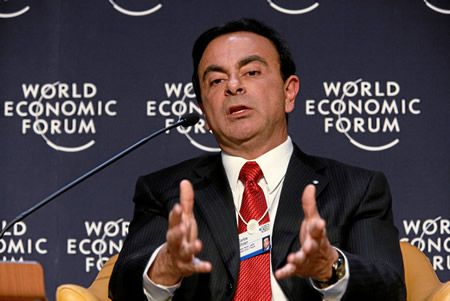
Photo: Carlos Ghosn, President and Chief Executive Officer, Renault, France; President and Chief Executive Officer, Nissan, Japan, captured during the session 'The Power of Collaborative Innovation' at the Annual Meeting 2008 of the World Economic Forum in Davos, Switzerland, January 25, 2008. (© World Economic Forum. Photo by Remy Steinegger)
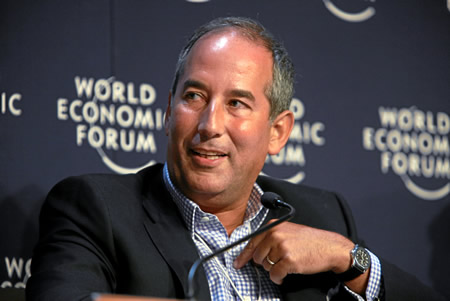
Photo: Thomas H. Glocer, Chief Executive Officer, Reuters, United Kingdom, captured during the session 'The Power of Collaborative Innovation' at the Annual Meeting 2008 of the World Economic Forum in Davos, Switzerland, January 25, 2008. (© World Economic Forum. Photo by Remy Steinegger)
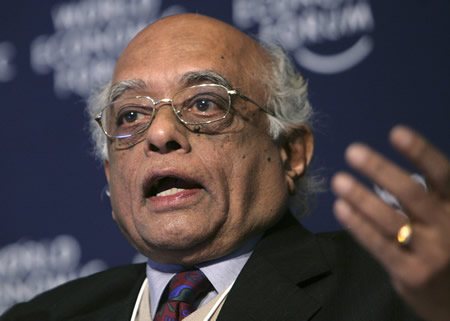
Photo: Rajagopala Chidambaram, Principal Scientific Adviser to the Government of India, captured during the session 'Innovative India' at the Annual Meeting 2008 of the World Economic Forum in Davos, Switzerland, January 25, 2008. (© World Economic Forum. Photo by Monika Flueckiger)
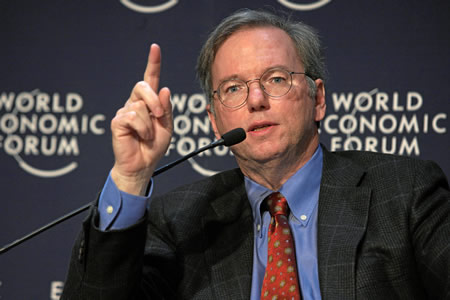
Photo: Eric Schmidt, Chairman of the Executive Committee and Chief Executive Officer, Google, USA, captured during the session 'The Future of Mobile Technology' at the Annual Meeting 2008 of the World Economic Forum in Davos, Switzerland, January 25, 2008. (© World Economic Forum. Photo by Andy Mettler)
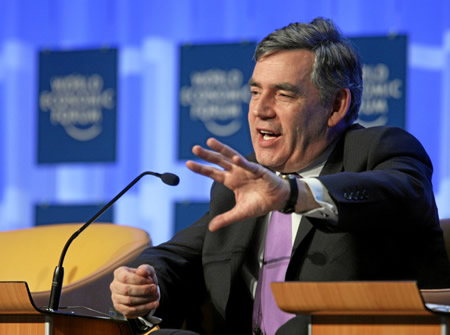
Photo: Gordon Brown, Prime Minister of the United Kingdom, captured during the session 'Three Crucial Questions for the Prime Minister of the United Kingdom, Gordon Brown' at the Annual Meeting 2008 of the World Economic Forum in Davos, Switzerland, January 25, 2008. (© World Economic Forum. Photo by Andy Mettler)
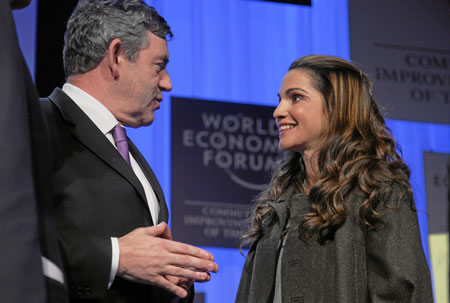
Photo: Gordon Brown, Prime Minister of the United Kingdom and H.M. Queen Rania Al Abdullah of the Hashemite Kingdom of Jordan, Member of the Foundation Board of the World Economic Forum, talk to each other during the session 'Corporate Global Citizenship in the 21st Century' at the Annual Meeting 2008 of the World Economic Forum in Davos, Switzerland, January 24, 2008. (© World Economic Forum. Photo by Andy Mettler)

Photo: H.M. Queen Rania Al Abdullah of the Hashemite Kingdom of Jordan, Member of the Foundation Board of the World Economic Forum, captured during the session 'Corporate Global Citizenship in the 21st Century' at the Annual Meeting 2008 of the World Economic Forum in Davos, Switzerland, January 24, 2008. (© World Economic Forum. Photo by Andy Mettler)
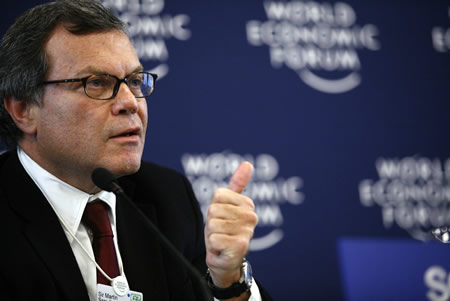
Photo: Sir Martin Sorrell , Group Chief Executive, WPP, United Kingdom, captured at the Annual Meeting 2007 of the World Economic Forum in Davos, Switzerland, January 25, 2007. (© World Economic Forum. Photo by Annette Boutellier)
Davos, Switzerland -- "The US brand still has significant leadership, but there has been a significant decline in the perception of the brand over the past few years," Sir Martin Sorrell, Group Chief Executive, WPP, United Kingdom, told the World Economic Forum Annual Meeting 2008 at a session entitled "Rebuilding Brand America: Five Suggestions for the Future President".
Sorrell said market research carried out by his company prior to the Annual Meeting looked at the United States as both a political and a corporate brand. "The report card for brand manager [President George W.] Bush is 'could do better'," he said, adding: "The relationship with the rest of the world has deteriorated."
But News Corporation chief Rupert Murdoch made a spirited defence of the actions and standing of the US, even dismissing the title of the debate as a "false presumption". Asked what advice he would give to the US President, Murdoch replied: "I would advise not to read The New York Times. The United States has a great image around the world."
The United States provides more international aid and assistance than any other country and has a tradition of philanthropy that is simply unmatched elsewhere. "The generosity of the Americans is amazing and most people know this," he affirmed. But what everybody needs to understand is that the world changed for the US on 9/11.
The two business leaders were joined on the panel by Publicis head Maurice Levy and H.H. Sheikh Salman Bin Hamad Al Khalifa, Crown Prince and Chairman of the Economic Development Board of the Kingdom of Bahrain, who both stressed the need for the United States to be seen to be applying its traditional values.
"It should try as much as possible to apply its values universally. It will make us all play the game better," said the Crown Prince, who praised the role of the United States in guaranteeing the security of his country and others in the region over the past 50 years. He said that he chose to study in the US because he was attracted by the "values of a free nation."
Nevertheless, the US role in the Middle East has probably "led to some negative perception". Making clear that he was referring to the Palestinian-Israeli question, the Crown Prince added: "All we seek is that it apply its values universally."
Levy, who joked he was reluctant to differ with Murdoch because he is a good business client, said that it is important to see what is not working when it comes to the US image. "They have lost something very important. They have a glorious past, coloured by some decisions in recent years." He said the turning point was Iraq.
In many ways, the United States suffers from being held in such high regard that people are probably tougher on it than on other countries. "You are more tough on them when you love them," said Levy. To remedy the situation, the United States needs to engage more with other countries on issues such as global warming, be a "little less lonely" when making foreign policy decisions, and perhaps be more ready to accept advice from others.
Sorrell noted that even though his market research shows that the US corporate brand is "not well liked", US companies still account for 50% of the top 10 brands in China in terms of market recognition and loyalty, and in Italy the figure is only slightly lower. |GlobalGiants.com|







Edited & Posted by the Editor | 12:13 AM | Link to this Post






